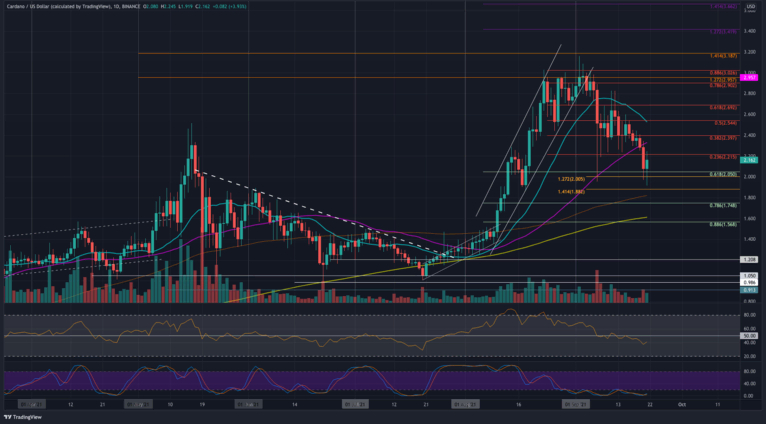
Blockchain technology continues to revolutionize various industries, with supply chain finance and trade finance emerging as key sectors benefiting from its capabilities. The transparency, security, and efficiency that blockchain offers make it an ideal tool for transforming traditional financial processes in these areas. In this post, we will delve into how blockchain can be leveraged to streamline supply chain finance and trade finance, offering substantial advantages over legacy systems.
Understanding the Role of Blockchain in Supply Chain Finance and Trade Finance
At its core, supply chain finance (SCF) is a set of solutions that optimize cash flow by providing financing options to suppliers based on the creditworthiness of buyers. Trade finance, on the other hand, involves financing international trade transactions, covering a wide range of instruments like letters of credit and trade credit insurance. Both sectors rely heavily on trust, documentation, and intermediaries, making them prone to inefficiencies, fraud, and delays.
Blockchain technology offers a decentralized, immutable ledger that enables the secure exchange of information between parties in a trustless environment. This characteristic alone provides significant advantages in reducing fraud and administrative costs, while enhancing transparency and improving liquidity.
How Blockchain Improves Supply Chain Finance
- Transparency and Real-Time Tracking
One of the biggest challenges in supply chain finance is the lack of real-time visibility. Blockchain enables all participants in the supply chain to access a single, transparent ledger that tracks every transaction, asset, and document. This creates an audit trail that can be accessed at any time, reducing the risk of fraud, errors, and discrepancies in financial records. - Smart Contracts for Automated Payments
The use of smart contracts can automate various processes in supply chain finance. For example, payments can be triggered automatically once goods are delivered and verified on the blockchain. These self-executing contracts eliminate the need for intermediaries, such as banks or clearinghouses, speeding up the settlement process and reducing transaction fees. - Increased Access to Financing
Traditional supply chain finance relies heavily on the creditworthiness of buyers, leaving small and medium-sized enterprises (SMEs) at a disadvantage. With blockchain, financial institutions can access a more comprehensive set of data on the movement of goods and payment histories, allowing them to offer more inclusive financing options based on real-time information rather than solely on historical financial statements. - Dispute Resolution
Blockchain’s immutable nature ensures that once a transaction is recorded, it cannot be altered. This significantly reduces disputes related to payment, shipment, or delivery timelines, as all parties involved can view the same accurate, unchangeable data.
How Blockchain Enhances Trade Finance
- Streamlined Documentation and Compliance
Trade finance is notoriously paper-intensive, with numerous documents such as bills of lading, letters of credit, and invoices needing to be manually processed and verified. Blockchain can store all of this documentation digitally, making it easier to share and verify between parties. The use of smart contracts can automate the approval of documents and trigger payments, reducing the manual effort and delays involved in the process. - Cross-Border Transactions with Greater Efficiency
Blockchain’s ability to offer faster, lower-cost transactions is particularly beneficial in cross-border trade. Traditional trade finance systems often require multiple intermediaries, such as correspondent banks, to facilitate international transactions. Blockchain can replace these intermediaries, significantly reducing the cost and time it takes to settle cross-border payments. This improves liquidity for businesses, allowing them to access funds more quickly and efficiently. - Fraud Prevention and Risk Mitigation
The decentralized and transparent nature of blockchain ensures that all transactions are securely recorded and visible to all authorized participants. This greatly reduces the risk of fraud, which is a persistent challenge in international trade. By verifying the authenticity of documents and transactions on the blockchain, companies can mitigate risks related to counterfeiting, double financing, and trade-based money laundering. - Greater Access to Financing for SMEs
Similar to supply chain finance, trade finance is also skewed toward large enterprises with established credit histories. Blockchain can level the playing field by providing SMEs with access to trade finance solutions based on real-time data rather than legacy credit scores. This opens up new avenues for SMEs to expand their businesses and engage in international trade.
Future Outlook: The Road Ahead for Blockchain in Finance
The integration of blockchain into supply chain finance and trade finance is still in its early stages, but the potential for disruption is immense. As blockchain technology matures, we can expect further advancements in areas such as interoperability between blockchain networks, increased adoption of tokenized assets for trade, and the development of new regulatory frameworks to ensure the secure and compliant use of blockchain in financial services.
Blockchain’s impact on these sectors will likely continue to grow, driven by increased trust, lower costs, and greater efficiency. However, challenges such as scalability, regulatory uncertainty, and the need for industry-wide collaboration remain. Over time, as these challenges are addressed, blockchain is poised to redefine the way businesses handle supply chain and trade finance.
Blockchain technology offers a transformative solution for both supply chain finance and trade finance, promising to eliminate inefficiencies, reduce costs, and improve transparency and security. By leveraging the power of decentralized ledgers, smart contracts, and real-time data, businesses can unlock new opportunities for financing, particularly in the underserved SME sector. As the technology continues to evolve, the full potential of blockchain in these fields will be realized, revolutionizing the global finance landscape.



